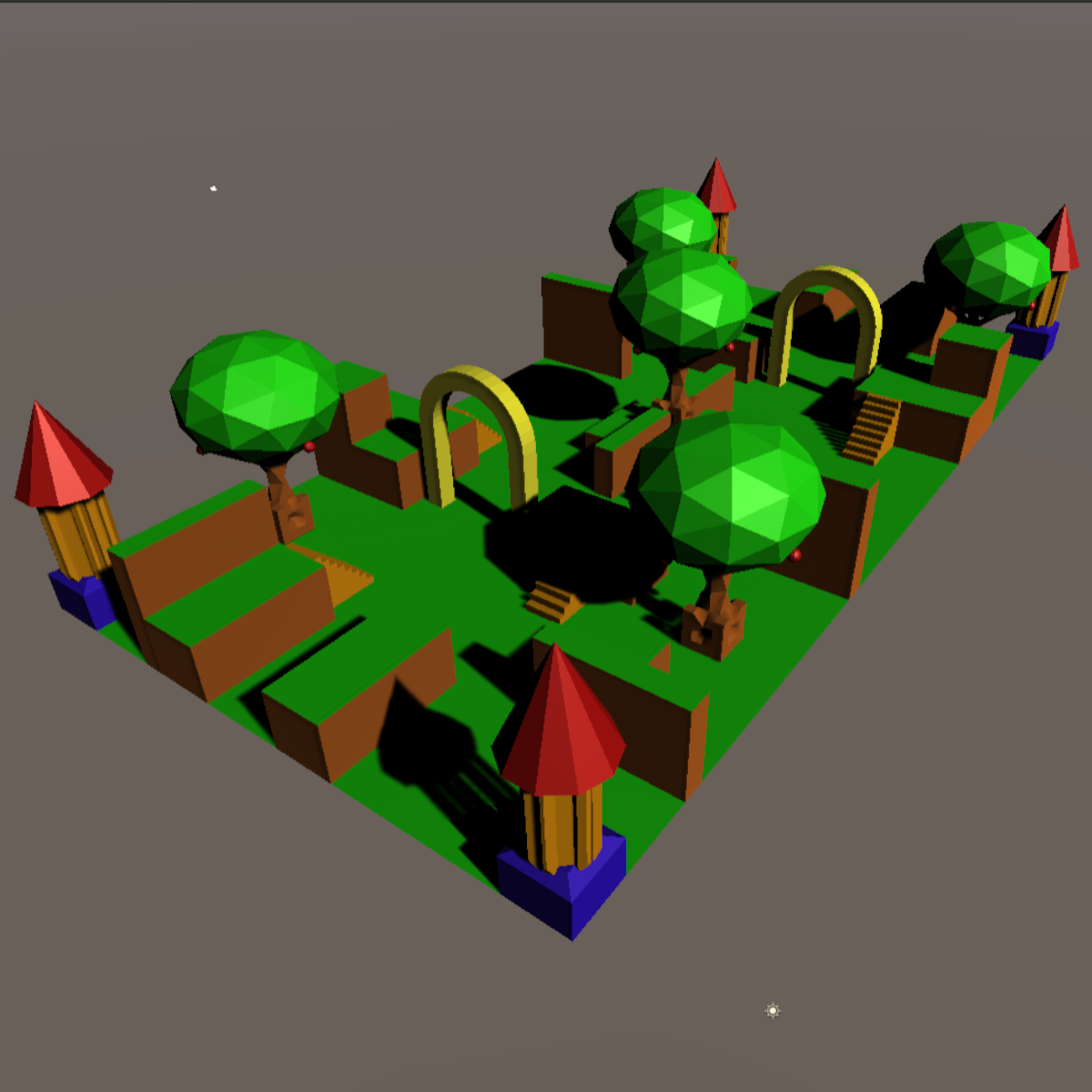Interior designer
A Career Guide to Interior Design
Interior design is a multifaceted profession focused on enhancing the interior of a building to achieve a healthier, more functional, and aesthetically pleasing environment for the people using the space. It involves planning, designing, and managing the execution of interior spaces, considering aspects like space allocation, layout, finishes, furnishings, and lighting, all while adhering to building codes and safety regulations. More than just selecting colors and furniture, interior design blends art and science to create environments that meet clients' needs and improve their quality of life or work efficiency.
Embarking on a career as an interior designer offers the chance to shape the spaces where people live, work, and play. It's a field where creativity meets problem-solving, requiring both artistic vision and technical know-how. Designers often find excitement in transforming a client's vision into a tangible reality, navigating challenges, and ultimately creating spaces that are both beautiful and purposeful. The variety of projects, from cozy homes to bustling commercial spaces, ensures a dynamic and engaging work life.
What is Interior Design?
This section delves into the core concepts of interior design, differentiating it from related fields and outlining its fundamental objectives.
Definition and Scope
Interior design is the art and science of understanding people's behavior to create functional spaces within a building. It involves researching, planning, coordinating, and managing projects to obtain an adequately healthy and aesthetically pleasing environment for the end user. The scope includes space planning, conceptual development, site inspections, programming, research, communication with stakeholders, construction management, and execution of the design.
Unlike interior decorating, which primarily focuses on furnishings, finishes, and surface treatments, interior design addresses the underlying structure and function of the space. Designers work with architects, engineers, and contractors to shape the spatial experience, considering factors like flow, ergonomics, accessibility, and building systems integration. They ensure that the design complies with relevant codes and regulations for health and safety.
The field encompasses a wide range of project types, including residential (homes, apartments), commercial (offices, retail stores, restaurants), hospitality (hotels, resorts), healthcare (hospitals, clinics), institutional (schools, museums), and more. Each type demands specific knowledge and design considerations tailored to the users and activities involved.
These courses provide a solid introduction to the fundamental principles and practices of interior design, suitable for those starting their journey.
Historical Evolution
The concept of consciously designing interiors has existed for centuries, evolving alongside architecture and societal changes. Early forms can be seen in ancient civilizations, where decorations and layouts reflected status, culture, and religious beliefs. However, interior design as a distinct profession emerged more formally in the late 19th and early 20th centuries.
Pioneers like Elsie de Wolfe, often credited as one of the first professional interior decorators in America, shifted the focus from heavy Victorian styles towards lighter, more personalized spaces. The rise of industrialization brought new materials and manufacturing techniques, while architectural movements like Art Nouveau, Art Deco, and Modernism profoundly influenced interior aesthetics and approaches.
Post-World War II saw increased demand for professional design services as economies grew and living standards improved. Professional organizations were established, educational programs were developed, and licensing regulations began to appear, solidifying interior design as a recognized profession requiring specialized knowledge and skills beyond mere decoration.
Understanding the history provides context for contemporary styles and practices. These resources delve into the evolution and key figures of architecture and design.
Core Objectives
The primary goal of interior design is to create spaces that are functional, aesthetically pleasing, and safe for occupants. Functionality means the space works well for its intended purpose. This involves effective space planning, logical layouts, appropriate furniture selection, and consideration of ergonomics and workflow.
Aesthetics relate to the visual and sensory appeal of the space. Designers use elements like color, light, texture, pattern, and form to create a desired mood, style, and atmosphere. This requires a strong understanding of design principles such as balance, harmony, rhythm, emphasis, and proportion.
Safety and well-being are paramount. Designers must ensure compliance with building codes, fire regulations, accessibility standards (like the ADA in the US), and other health and safety requirements. This includes specifying non-toxic materials, ensuring adequate lighting, planning safe circulation paths, and considering the physical and psychological comfort of occupants.
Interior Design vs. Interior Decoration
While often used interchangeably by the public, interior design and interior decoration are distinct disciplines. Interior decoration focuses solely on the ornamentation and furnishing of a space after the structural elements are complete. Decorators select color schemes, furniture, textiles, accessories, and arrange these elements to enhance the aesthetic appeal.
Interior design, conversely, involves a deeper level of engagement with the space itself. Designers may modify the actual structure, plan layouts, specify materials, coordinate with architects and contractors, and must possess technical knowledge of building codes, accessibility standards, and construction methods. They are trained to consider the function and safety of the space alongside its aesthetics.
Essentially, interior designers can decorate, but interior decorators do not typically engage in the full scope of design work that involves structural planning or requires adherence to building regulations. The distinction is important, particularly regarding education, qualifications, and, in many jurisdictions, the legal right to offer certain services or use the title "Interior Designer."
Key Responsibilities of an Interior Designer
Interior designers juggle a diverse set of tasks, blending creativity with technical expertise and management skills throughout a project's lifecycle.
Space Planning and Optimization
A core responsibility is analyzing and planning the use of space to maximize functionality and flow. This involves understanding the client's needs, the intended activities within the space, and the relationships between different areas. Designers use tools like bubble diagrams, adjacency matrices, and scaled floor plans to develop optimal layouts.
Optimization considers factors like circulation paths, furniture placement, storage solutions, and the ergonomic needs of occupants. Designers aim to create efficient, comfortable, and adaptable spaces, whether it's an open-plan office designed for collaboration or a compact apartment requiring clever multi-functional solutions.
Technical drawings, often created using CAD software, communicate these spatial arrangements precisely to clients and construction teams. This ensures everyone understands the intended layout and dimensions before implementation begins.
These courses cover essential space planning concepts and the software often used to execute them.
Material Selection and Sustainability
Choosing appropriate materials, finishes, and furnishings is critical. Designers select items based on aesthetics, functionality, durability, budget, and maintenance requirements. This involves specifying flooring, wall coverings, paint colors, lighting fixtures, furniture, textiles, and accessories.
Increasingly, sustainability is a major consideration. Designers research and specify eco-friendly options, such as materials with recycled content, low volatile organic compound (VOC) emissions, sustainable harvesting practices (e.g., FSC-certified wood), and energy-efficient lighting and appliances. They consider the entire lifecycle of materials, from sourcing to disposal.
Understanding the properties and applications of diverse materials – from natural stone and wood to engineered composites and smart textiles – is essential. Maintaining relationships with suppliers and staying updated on new product innovations is also part of the job.
Client Collaboration and Project Management
Interior designers act as liaisons between clients and various tradespeople (contractors, electricians, plumbers, painters, etc.). Strong communication and collaboration skills are vital. The process begins with understanding the client's needs, preferences, budget, and timeline through consultations and detailed briefs.
Designers develop concepts and present them to clients using sketches, mood boards, material samples, and digital renderings. They refine designs based on feedback, manage budgets, create project schedules, and oversee the procurement of materials and furnishings.
During the execution phase, designers coordinate with contractors and suppliers, conduct site visits to monitor progress and ensure quality, troubleshoot issues, and manage changes. Effective project management ensures the project stays on track, within budget, and aligns with the approved design vision.
Compliance with Building Codes and Accessibility
Ensuring designs comply with relevant building codes, regulations, and accessibility standards is a critical responsibility, particularly in commercial and public spaces. These codes govern aspects like fire safety (e.g., material flammability ratings, egress paths), structural integrity, electrical and plumbing systems, and ventilation.
Accessibility standards, such as the Americans with Disabilities Act (ADA) in the United States, mandate design features that ensure spaces are usable by people with diverse abilities. This includes considerations like doorway widths, ramp gradients, restroom layouts, and reach ranges for controls and fixtures.
Designers must research and apply the specific codes and standards applicable to their project's location and type. This often involves coordinating with architects and engineers and preparing documentation for permit applications. Failure to comply can result in costly revisions, legal issues, and compromised occupant safety.
Essential Skills for Interior Designers
Success in interior design requires a blend of technical proficiency, creative talent, interpersonal abilities, and business acumen.
Technical and Software Skills
Proficiency in industry-standard software is crucial. Computer-Aided Design (CAD) software like AutoCAD is used for creating precise 2D technical drawings (floor plans, elevations, sections). Building Information Modeling (BIM) software, particularly Revit, is increasingly important, especially in larger firms and commercial projects, as it allows for integrated 3D modeling and data management.
3D modeling and visualization software such as SketchUp, 3ds Max, and Rhino are used to create realistic renderings and virtual walkthroughs for client presentations. Rendering engines like V-Ray or tools like Enscape and Twinmotion enhance the realism of these visualizations. Familiarity with graphic design software like Adobe Photoshop and Illustrator is also beneficial for creating presentations and editing images.
Beyond software, technical skills include hand sketching, drafting principles, understanding construction methods, and knowledge of materials and their properties. These skills enable designers to translate creative ideas into buildable realities.
Developing proficiency in industry-standard software is essential. These courses cover some of the most widely used tools in interior design, from 2D drafting to advanced 3D modeling and rendering.
Creativity and Communication Skills
Creativity is the foundation of interior design. It involves generating original ideas, solving design problems innovatively, and developing unique aesthetic concepts. Designers need a strong sense of style, an eye for color, spatial awareness, and the ability to think three-dimensionally.
Equally important are communication skills. Designers must effectively listen to clients to understand their needs and vision. They need to clearly articulate their design concepts verbally and visually through presentations. Collaboration with clients, contractors, suppliers, and other professionals requires clear, concise, and diplomatic communication.
Problem-solving skills are essential for addressing unforeseen challenges during a project, while attention to detail ensures accuracy and quality in both design and execution. Adaptability and resilience help designers navigate feedback and project constraints effectively.
These courses focus on nurturing creativity and enhancing vital communication skills.
Business and Negotiation Skills
Many interior designers, especially those who are self-employed or run their own firms, need strong business skills. This includes understanding basic accounting principles, creating and managing budgets, developing project proposals, and writing contracts.
Marketing and sales skills are necessary to attract clients and build a professional reputation. Networking within the industry and related fields (like real estate and construction) is also beneficial. Understanding business operations, including time management and resource allocation, contributes to project profitability and efficiency.
Negotiation skills are crucial when dealing with clients regarding fees and scope, as well as with suppliers and contractors regarding costs and timelines. The ability to negotiate effectively while maintaining positive relationships is a valuable asset.
These resources cover essential business practices relevant to designers.
Emerging Skills in Technology
The field is constantly evolving, and designers need to stay abreast of emerging technologies. Virtual Reality (VR) and Augmented Reality (AR) are increasingly used for immersive client presentations, allowing stakeholders to experience designs before construction begins.
Artificial Intelligence (AI) is also making inroads. AI tools can assist with tasks like generating initial design concepts based on parameters, automating renderings, optimizing layouts, and suggesting material palettes. While AI enhances efficiency, research suggests it complements rather than replaces the designer's creativity, problem-solving abilities, and client interaction skills. According to a 2024 article on Medium discussing AI's role, the technology acts as a tool, but the human touch involving complex problem-solving, technical knowledge, and personalized interaction remains irreplaceable.
Familiarity with smart home technology and its integration into design is also becoming more important as clients seek connected and automated living environments. Staying updated on these technological advancements ensures designers remain competitive and can offer cutting-edge solutions.
Explore courses delving into the intersection of design and emerging technologies like AI and VR.
Formal Education Pathways
While talent and experience are crucial, formal education often provides the foundational knowledge, technical skills, and credentials necessary for a successful interior design career, particularly for roles requiring adherence to codes and regulations.
Degree Programs and Accreditation
Many aspiring interior designers pursue a formal degree. Common options include associate's degrees (typically 2 years), bachelor's degrees (BFA, BS, BA - typically 4 years), and master's degrees (MFA, MA, MS - typically 1-3 years post-bachelor's). Bachelor's degrees are often considered the standard entry point for professional practice.
Accreditation is a key factor when choosing a program. In North America, the Council for Interior Design Accreditation (CIDA) is the primary accrediting body. Graduating from a CIDA-accredited program ensures the curriculum meets rigorous standards recognized by the profession and is often a prerequisite for taking professional licensing exams like the NCIDQ.
Degree programs provide structured learning in design theory, history, technical skills, building codes, materials, and professional practices, preparing graduates for the complexities of the field.
Typical Coursework
Interior design curricula cover a broad range of subjects. Foundational courses often include drawing and sketching (both freehand and technical), principles and elements of design, visual arts fundamentals, and color theory.
Technical coursework typically involves architectural drafting (manual and CAD), 3D modeling and rendering, construction methods and materials, building systems (lighting, HVAC, plumbing), building codes, and accessibility standards. Courses focusing on sustainability and green building practices are also increasingly common.
Students also study the history of architecture and interiors, various design styles, space planning techniques, furniture design, textiles, and professional practices (business, ethics, project management). Studio courses provide hands-on experience applying concepts to design projects.
These online courses cover core subjects typically found in formal interior design programs.
Internships and Portfolio Development
Practical experience is invaluable. Most degree programs require or strongly encourage internships. Internships provide real-world exposure, allowing students to apply classroom knowledge, learn from experienced professionals, build industry connections, and gain insights into the day-to-day workings of a design firm or department.
Developing a professional portfolio is essential for securing internships and entry-level positions. A portfolio showcases a student's design skills, creativity, technical abilities, and range of project experience. It typically includes examples of coursework, personal projects, and internship work, presented through drawings, renderings, material boards, and project descriptions.
A strong portfolio visually communicates a designer's capabilities and design sensibility to potential employers or clients. Many programs incorporate portfolio development courses into their curriculum.
Licensing, Certification, and Continuing Education
In many jurisdictions in North America, the practice of interior design, particularly in commercial or public spaces, is regulated. This often involves obtaining a license, registration, or certification. The most widely recognized professional credential is the NCIDQ Certification, administered by the Council for Interior Design Qualification (CIDQ).
Passing the NCIDQ Exam typically requires a combination of accredited education and documented work experience. According to the CIDQ eligibility requirements, candidates generally need a minimum of a bachelor's degree in interior design or architecture plus specified hours of qualified work experience (e.g., 3,520 hours, roughly two years full-time, for a CIDA-accredited bachelor's degree). The exam itself consists of three parts covering fundamentals, professional practice, and a practicum section assessing problem-solving skills related to codes, building systems, and contract documents.
Many states and provinces require passing the NCIDQ exam for licensing or registration, which may grant the right to use a protected title (like "Registered Interior Designer") or practice rights (like stamping drawings for permits). Requirements vary, so checking with the specific state or provincial board is crucial. Maintaining licensure or certification often requires ongoing continuing education units (CEUs) to stay current with codes, technology, and best practices.
Alternative Learning Strategies
While formal degrees are common, alternative paths exist for entering and advancing in interior design, particularly valuable for career changers or those seeking specialized knowledge.
Specialized Certification Programs
Beyond broad degree programs, numerous certification programs focus on specific niches within interior design. These can be valuable for gaining specialized expertise or for individuals transitioning from related fields. Examples include certifications in Kitchen & Bath Design (e.g., NKBA certifications), Healthcare Interior Design (e.g., CHID), Sustainable Design (e.g., LEED Green Associate or AP with Interior Design + Construction specialty), or Lighting Design.
These programs often require less time commitment than a full degree and can be completed online or through professional organizations. They demonstrate proficiency in a specific area, enhancing marketability for certain roles. For those already possessing a design background or degree in an adjacent field, certifications offer a targeted way to acquire interior design-specific skills.
Explore specialized areas like home staging or specific design styles through focused courses.
Project-Based Learning and Competitions
Practical experience and a strong portfolio are paramount. Individuals can build these through self-directed projects, freelance work for smaller clients, or volunteering design services for non-profits. Re-designing personal spaces and documenting the process can also serve as valuable portfolio pieces.
Participating in design competitions offers another avenue for project-based learning and gaining recognition. Many organizations and companies host competitions challenging students and emerging designers to tackle specific design problems. Success in competitions can bolster a portfolio and resume.
Online platforms sometimes offer project-based courses where learners complete a design challenge, often receiving feedback. This hands-on approach solidifies skills and results in tangible work examples.
Mentorship Opportunities
Learning from experienced professionals is invaluable. Seeking mentorship relationships can provide guidance, industry insights, networking opportunities, and practical advice that textbooks or courses might not cover. Mentors can offer feedback on portfolios, share knowledge about navigating the industry, and help set career goals.
Mentors can be found through professional organizations (like ASID or IIDA), networking events, alumni connections, or even reaching out directly (respectfully) to designers whose work you admire. Some formal mentorship programs may also be available through industry associations or educational institutions.
Building professional relationships takes time and effort but can significantly accelerate career development and provide crucial support, especially for those entering the field through non-traditional paths.
Combining Adjacent Fields
Skills and knowledge from related disciplines can be highly transferable to interior design. Individuals with backgrounds in architecture, graphic design, industrial design, fashion design, art history, or even theatre set design often possess relevant skills in spatial reasoning, aesthetics, color theory, drawing, or project management.
For those pivoting from such fields, online courses can be an effective way to bridge knowledge gaps. Courses focusing on interior-specific topics like building codes, materials specification, residential design principles, or specialized software (like Revit for interiors) can supplement existing expertise.
Highlighting transferable skills and demonstrating new, relevant knowledge through targeted coursework and portfolio projects can create a compelling narrative for career changers.
Career Progression in Interior Design
The path in interior design typically involves advancing from entry-level support roles to handling projects independently, potentially specializing, and possibly moving into leadership or entrepreneurship.
Entry-Level Roles
Graduates often begin as Design Assistants or Junior Designers. In these roles, individuals support senior designers and project teams. Common tasks include drafting plans using CAD software, creating 3D models and renderings, sourcing material samples, maintaining the materials library, preparing presentation boards, and assisting with administrative tasks.
These positions provide essential hands-on experience and exposure to the practical aspects of the design process. It's a critical learning phase for developing technical skills, understanding firm operations, and observing client interactions and project management in action.
Building a strong foundation in software, drafting standards, and material knowledge is key during this stage. Actively seeking learning opportunities and demonstrating reliability are important for advancement.
Entry-level designers often work extensively with foundational software and concepts. These courses build essential skills.
Mid-Career Paths and Specialization
With experience (typically 2-5 years), designers progress to roles like Interior Designer or Project Designer. They take on more responsibility, manage smaller projects independently, or handle significant portions of larger projects under supervision. This includes direct client interaction, concept development, material selection, and coordination with contractors.
At this stage, many designers begin to specialize. Specializations can be based on project type (residential, commercial, healthcare, hospitality, retail, institutional) or specific expertise (sustainable design, lighting design, kitchen & bath design, universal design, historic preservation).
Developing a niche allows designers to deepen their knowledge, build a reputation in a specific area, and potentially command higher fees or salaries. Continued learning through workshops, certifications, and industry events supports specialization.
Mid-career designers often deepen their expertise in specific areas or software.
Leadership Opportunities
Experienced designers with strong leadership and project management skills may advance to senior roles. Positions like Senior Interior Designer, Project Manager, Studio Director, or Design Principal involve overseeing complex projects, managing design teams, mentoring junior staff, and contributing to business development.
Leadership roles require not only design expertise but also strategic thinking, financial acumen, client relationship management, and strong communication skills. These individuals often shape the design direction of the firm, ensure quality standards are met, and play a key role in winning new business.
Further education, such as a master's degree or business courses, along with proven success in managing projects and teams, can facilitate advancement into leadership positions.
Entrepreneurial Avenues
Many experienced interior designers choose to start their own design firms. Entrepreneurship offers autonomy, the ability to shape one's own brand and design philosophy, and potentially higher earning potential. However, it also involves significant challenges.
Running a firm requires managing all aspects of the business, including marketing, client acquisition, finance, administration, and potentially staff management, in addition to the design work itself. It demands strong business acumen, financial planning, and resilience.
Successful design entrepreneurs often build a strong network, develop a clear niche or brand identity, and possess excellent project management and client relationship skills. Starting small, perhaps with freelance projects alongside a full-time job, can be a way to test the waters before fully launching an independent practice.
Interior Designer's Role in Sustainable Practices
Sustainability is no longer a niche concern but an increasingly integral part of responsible interior design practice, driven by environmental awareness and client demand.
Circular Design Principles
Moving beyond linear "take-make-dispose" models, circular design principles emphasize keeping materials and products in use for as long as possible. For interior designers, this means designing for durability, adaptability, disassembly, and reuse.
Strategies include selecting long-lasting materials, designing modular furniture that can be reconfigured, specifying products made from recycled content or those that can be easily recycled, and planning for future renovations that minimize waste. It involves considering the end-of-life of materials and components at the initial design stage.
This approach aims to reduce resource depletion, minimize waste generation, and lessen the environmental footprint of interior spaces throughout their lifecycle.
Energy-Efficient Material Selection
Material choices significantly impact a building's energy performance and overall environmental footprint. Designers play a role in selecting materials that contribute to energy efficiency and have lower embodied energy (the energy consumed during extraction, manufacturing, and transportation).
This includes specifying insulation materials with high R-values, choosing energy-efficient windows and treatments, selecting light-colored roofing materials to reduce heat absorption, and opting for locally sourced materials to minimize transportation emissions. Specifying energy-efficient lighting (like LEDs) and appliances also falls under this purview.
Understanding the thermal properties, manufacturing processes, and sourcing origins of materials allows designers to make informed choices that support energy conservation and reduce greenhouse gas emissions.
These courses offer insights into sustainable materials and design practices.
WELL Building Standard Implementation
While LEED (Leadership in Energy and Environmental Design) primarily focuses on environmental sustainability, the WELL Building Standard, administered by the International WELL Building Institute (IWBI), specifically targets human health and well-being within the built environment. Interior designers are key players in implementing WELL features.
WELL organizes strategies around concepts like Air, Water, Nourishment, Light, Movement, Thermal Comfort, Sound, Materials, Mind, and Community. Designers contribute by specifying materials with low VOC emissions, designing optimal lighting strategies (natural and artificial), creating acoustically comfortable spaces, incorporating biophilic elements (nature connection), designing spaces that encourage movement, and selecting non-toxic materials.
Achieving WELL certification involves meeting specific performance metrics and design strategies, often requiring collaboration between designers, architects, engineers, and building operators. Familiarity with WELL principles enhances a designer's ability to create truly healthy and supportive environments.
Lifecycle Assessment of Design Choices
Lifecycle Assessment (LCA) is a methodology for evaluating the environmental impacts associated with all stages of a product's life, from raw material extraction through processing, manufacturing, distribution, use, repair, maintenance, and disposal or recycling ("cradle-to-grave").
Interior designers can utilize LCA data (often provided by manufacturers through Environmental Product Declarations or EPDs) to compare the environmental footprint of different material and product options. This allows for more informed decisions regarding embodied carbon, resource depletion, pollution, and waste generation.
While conducting full LCAs is complex, understanding the concept and knowing how to interpret LCA data empowers designers to select options with lower overall environmental impact, contributing to more sustainable design outcomes.
Global Market Trends for Interior Designers
The interior design profession is influenced by broader economic, social, and technological trends shaping how we live and work globally.
Post-Pandemic Spatial Design Demands
The COVID-19 pandemic significantly altered perceptions of space, particularly homes and workplaces. There's increased demand for functional home offices, flexible living areas that can adapt to various activities, and spaces promoting well-being and connection to nature (biophilic design).
Hygiene and health considerations have become more prominent, influencing material choices (e.g., antimicrobial surfaces) and ventilation strategies. Commercial spaces are also adapting, with offices potentially requiring more collaborative zones and flexible layouts to support hybrid work models, while hospitality and retail focus on creating safe and engaging experiences.
This shift emphasizes adaptability, wellness, and the integration of technology to support new ways of living and working, creating new opportunities for designers skilled in these areas. According to a JLL report on 2025 design trends, there's a growing focus on people's experience and designing for community and social connection.
Smart Home Technology Integration
The proliferation of smart home devices and systems presents both challenges and opportunities for interior designers. Clients increasingly expect seamless integration of technology for lighting control, climate management, security systems, entertainment, and home automation.
Designers need to understand the basics of these technologies to plan for wiring, device placement, and user interfaces effectively. The goal is to integrate technology in a way that enhances convenience and functionality without compromising the aesthetic design of the space.
Collaboration with home automation specialists may be required for complex systems. Staying updated on smart home trends and capabilities is becoming an essential aspect of contemporary interior design practice.
Cross-Cultural Design Influences
Globalization and increased travel have led to greater exposure and appreciation for design styles from different cultures. Clients may seek interiors inspired by Japanese minimalism, Scandinavian hygge, Mediterranean warmth, Moroccan vibrancy, or other global aesthetics.
Designers benefit from understanding diverse cultural styles and motifs, allowing them to incorporate these influences authentically and respectfully. This requires research and sensitivity to avoid cultural appropriation (discussed further in Ethics). The ability to blend different cultural elements cohesively can lead to unique and personalized design solutions.
Online resources and travel provide inspiration, but a deeper understanding of the cultural context behind design elements is crucial for meaningful integration.
Explore courses that touch upon diverse architectural and design styles from around the world.
Freelance Market Growth
The "gig economy" trend extends to interior design, with many professionals opting for freelance work or starting their own small practices rather than traditional employment in larger firms. Technology facilitates remote work, client communication, and access to online resources, making freelance careers more viable.
This offers flexibility and autonomy but requires designers to handle all aspects of business management, including marketing, finances, and client acquisition. Online platforms connect freelancers with clients, but building a strong personal brand and network remains crucial for sustained success.
The U.S. Bureau of Labor Statistics notes that a significant portion of interior designers are self-employed (around 40% according to some data sources). This trend highlights the importance of entrepreneurial skills alongside design expertise for many in the field.
Ethical Challenges in Interior Design
Like any profession dealing with clients, finances, and cultural expression, interior design presents unique ethical considerations that practitioners must navigate.
Cultural Appropriation
Incorporating design elements from different cultures can enrich spaces, but it must be done respectfully. Cultural appropriation occurs when elements from a minority culture are adopted by members of the dominant culture without understanding, respect, or credit, often reinforcing stereotypes or commodifying sacred items.
Ethical practice involves researching the origin and significance of cultural motifs, avoiding superficial or stereotypical applications, giving credit where appropriate, and ensuring the use doesn't cause harm or offense. It requires sensitivity, ongoing learning, and prioritizing respect over trendiness.
Engaging with artisans or sources from the originating culture, when possible, can also foster more authentic and respectful integration.
Balancing Client Desires with Environmental Impact
Clients may desire specific materials, finishes, or features that have significant negative environmental or social impacts (e.g., exotic woods from endangered forests, energy-intensive features, materials produced with unfair labor practices).
Designers face an ethical dilemma in balancing client satisfaction with their professional responsibility towards sustainability and ethical sourcing. This requires educating clients about the impacts of their choices and presenting sustainable alternatives that meet their aesthetic and functional goals.
It involves advocating for responsible choices, sometimes having difficult conversations, and potentially refusing requests that strongly conflict with ethical or environmental principles. Transparency about the impacts of different options is key.
Transparency in Vendor Relationships
Interior designers often specify and procure materials and furnishings from various vendors and suppliers. Ethical practice demands transparency in these relationships. Accepting undisclosed commissions or kickbacks from vendors for specifying their products creates a conflict of interest, potentially compromising the designer's objectivity and prioritizing vendor profit over the client's best interest.
Designers should disclose any financial arrangements or affiliations with vendors to their clients. Fee structures should be clear, whether based on hourly rates, fixed fees, or a transparent markup on procured goods. Maintaining professional integrity ensures trust and prioritizes the client's needs.
Accessibility vs. Aesthetic Compromises
Designing for accessibility ensures spaces are usable by everyone, regardless of ability. Sometimes, implementing accessibility features (e.g., grab bars, ramps, specific clearances) might seem to conflict with a desired aesthetic vision.
The ethical challenge lies in integrating accessibility seamlessly and creatively, rather than treating it as an afterthought or compromising on inclusivity for the sake of appearance. Universal design principles aim to create spaces that are inherently usable by all people to the greatest extent possible, often leading to more elegant and thoughtful solutions than simply meeting minimum code requirements.
Prioritizing inclusivity and finding design solutions that are both accessible and aesthetically pleasing is a mark of skilled and ethical practice.
Frequently Asked Questions
Here are answers to some common questions about pursuing a career in interior design.
Is interior design recession-proof?
No career is entirely recession-proof. The interior design industry is often tied to the health of the economy, particularly the construction and real estate sectors. During economic downturns, spending on renovations and new builds may decrease, impacting demand for design services.
However, demand can persist in certain areas. Home renovations may increase as people choose to improve existing spaces instead of moving. Commercial clients might require redesigns for changing needs (like adapting offices for hybrid work). Diversifying skills and client types (e.g., working across residential, commercial, and healthcare) can help mitigate economic fluctuations.
Building a strong reputation, network, and business skills enhances resilience regardless of economic conditions.
Can I practice without formal certification?
The answer depends on the type of work and the jurisdiction. Strictly speaking, purely decorative services often do not require specific credentials. However, to use the title "Interior Designer" legally and to practice the full scope of interior design (especially in commercial spaces involving building codes and permits), many states and provinces require specific education, experience, and passing the NCIDQ exam for licensure or registration.
According to CIDQ, twenty-nine US states, the District of Columbia, Puerto Rico, and all Canadian provinces have regulations. Some operate under "Title Acts" (protecting who can use the title) and others under "Practice Acts" (restricting who can perform certain services). Even where not legally required, NCIDQ certification is a recognized standard of professional competence that enhances credibility and marketability.
How does AI impact design careers?
Artificial Intelligence (AI) is increasingly influencing interior design, primarily as a tool to enhance efficiency and creativity. AI can assist with generating initial concepts, creating renderings quickly, optimizing layouts, and suggesting material palettes based on data analysis. Studies suggest AI integration can significantly reduce project timelines.
However, AI is generally not seen as replacing interior designers. Core aspects like understanding nuanced client needs through conversation, empathetic design, creative problem-solving for unique challenges, on-site project management, and ensuring the practical execution of designs still require human skills and judgment. Professionals view AI as a powerful assistant rather than a substitute, and familiarity with AI tools is becoming an expected skill in the job market.
What's the earning potential by specialization?
Earning potential varies widely based on experience, location, firm size, and specialization. Entry-level salaries are typically lower, while senior designers or firm principals can earn substantially more. According to ZipRecruiter data from March 2025, the average annual salary for an Interior Designer in the US is around $72,849, with a typical range between $58,000 and $83,000.
Specialization can influence earnings. Designers in high-demand commercial sectors like healthcare or hospitality, or those with specialized technical skills (e.g., advanced BIM proficiency), may command higher salaries. Luxury residential design can also be lucrative but often requires significant experience and reputation. Geographic location also plays a major role, with salaries generally higher in major metropolitan areas with higher costs of living.
How to handle difficult client expectations?
Managing client expectations is crucial. Start with a clear, detailed contract outlining the scope of work, deliverables, timeline, and fee structure. Maintain open and regular communication throughout the project, providing updates and addressing concerns promptly.
Use visual aids (renderings, samples) effectively to ensure clients understand the design direction before major commitments are made. If expectations seem unrealistic (regarding budget, timeline, or design feasibility), address these issues early and honestly, explaining constraints and proposing alternative solutions.
Sometimes, saying "no" or clarifying limitations is necessary to maintain project integrity and professional boundaries. Strong interpersonal skills, active listening, and patience are key to navigating challenging client interactions successfully.
Are qualifications internationally portable?
Portability varies significantly. While design principles are universal, building codes, regulations, standard practices, and material availability differ between countries. An interior design degree from one country may not be automatically recognized in another, potentially requiring evaluation by credentialing bodies (like World Education Services for NCIDQ eligibility).
Professional certifications like NCIDQ are recognized primarily in North America. Designers wishing to practice internationally may need to meet local educational requirements, gain local work experience, and potentially pass local licensing exams. Understanding the specific regulations of the target country is essential.
Language proficiency and cultural understanding are also critical for working effectively with international clients and colleagues.
Helpful Resources
Here are some additional resources for aspiring and practicing interior designers:
- Council for Interior Design Qualification (CIDQ): Information on the NCIDQ exam, eligibility, and professional standards.
- Council for Interior Design Accreditation (CIDA): Lists accredited interior design programs in North America.
- American Society of Interior Designers (ASID): Professional organization offering resources, networking, and advocacy (US-based).
- International Interior Design Association (IIDA): Global professional networking and educational association for commercial interior design.
- Bureau of Labor Statistics (BLS) Occupational Outlook Handbook: Provides information on job outlook, pay, and work environment for interior designers in the US.
- International WELL Building Institute (IWBI): Information on the WELL Building Standard for healthy buildings.
- OpenCourser Design Category: Browse thousands of online courses related to design principles, software, and techniques.
- OpenCourser Architecture Category: Explore courses in architectural history, theory, and related software.
- OpenCourser Learner's Guide: Find tips and strategies for making the most of online learning for career development.
Embarking on an interior design career offers a path filled with creativity, problem-solving, and the reward of shaping environments. It demands continuous learning, adaptability, and a blend of artistic and technical skills. Whether pursuing formal education or alternative learning strategies, building a strong portfolio and understanding the business side are key. With dedication and passion, you can create spaces that are not only beautiful but also functional and meaningful.

















































